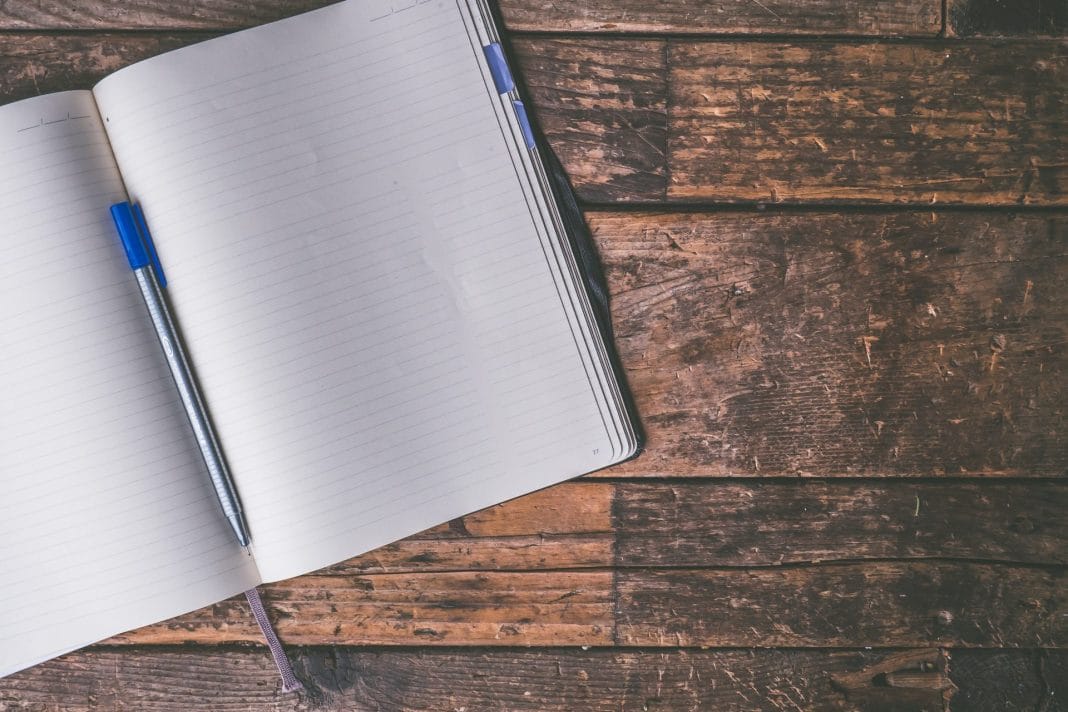“I never travel without my diary. One should always have something sensational to read in the train” – The Importance of Being Earnest, Oscar Wilde.
Writing a diary is never a neutral act. Whether we aim for truth or “something sensational”, a diary is its own form of fiction – and it shapes our thoughts as much as it records them. The effect of this is often overlooked. We are told that keeping a diary does wonders for your mental well-being. In my case, it only made things worse.
Three years ago, I started keeping a diary. I intended to use it as a record of everyday life – it was my A level summer, and I was sure my newfound freedom would lead to experiences worth recording. But before long, my diary became something else entirely. It was no longer about events – it was all about emotion. I quickly became addicted.
It’s an easy trap to fall into: a diary encourages introspection in a way that conversation rarely can. A diary invites self-reflection, but without knowing it, I began to over-analyse. It was the literary equivalent of doom-scrolling – only, instead of refreshing a digital feed, I was trawling through the most uncomfortable spaces in my own mind.
I don’t think that my diary changed my perception of everyday life, but it did change the way I reacted to it. A bad day became worse as I sat down to write – to dwell in the possible problems – thinking I was helping myself. My diary became a breeding ground for negativity, inflating the importance of trivial problems. We’ve all had moments when a miserable day is lifted by a change of scenery – what seemed like a crisis solved simply by sunlight and fresh air. The way I was using my diary was akin to keeping myself locked inside – left to ruminate on feelings I unknowingly fuelled with each new entry.
Yet keeping a diary can be a beautiful thing. It is a space for reflection, a quiet sanctuary away from the constant noise of the outside world. When I write about moments of happiness, I find that I am able to extend them – reliving and savouring them in the slowed time of the page. Of course, limiting a diary to positive moments is equally unhelpful, undermining the very point of having a space where you can be completely honest. Used properly, a diary can be a tool: a form of silent therapy, a way to work through unresolved feelings and untangle emotional knots. It can be cathartic, too – sometimes, the need to unload is urgent, and the only place that feels safe to do so is within the pages of a book. And, often, as in the case of a child who scribbles down, in rage, a plot to kill their sibling, some thoughts are best kept private.
I used to think of my diary as a place where thoughts might spread freely across the page–a wild garden of ideas. But I have come to realise that by dwelling on what is negative, I had allowed the weeds to spread, crowding out space for growth. Self-awareness is important, but if untended, it can turn into hyper-awareness – a tangled, dark place to be.
A diary is the story we tell ourselves about ourselves. We shouldn’t ignore what is difficult, but we should be mindful of how we engage with it. Our thoughts work like algorithms – the more you think about something, the more it appears. In my early diary entries, I supercharged a cycle of negativity without even knowing. I’m not suggesting that we stop keeping diaries, far from it. Over the years, I have gifted many to a friend in need. But like all relationships, the one we have with our diaries should be conscious. A diary can soothe and create joy, but it can also intensify self-analysis. The key, perhaps, is to make sure we are balanced in the story we tell ourselves.
So, if you’re thinking of keeping a diary, give it a shot – only, make sure you know what you’re getting yourself into.


